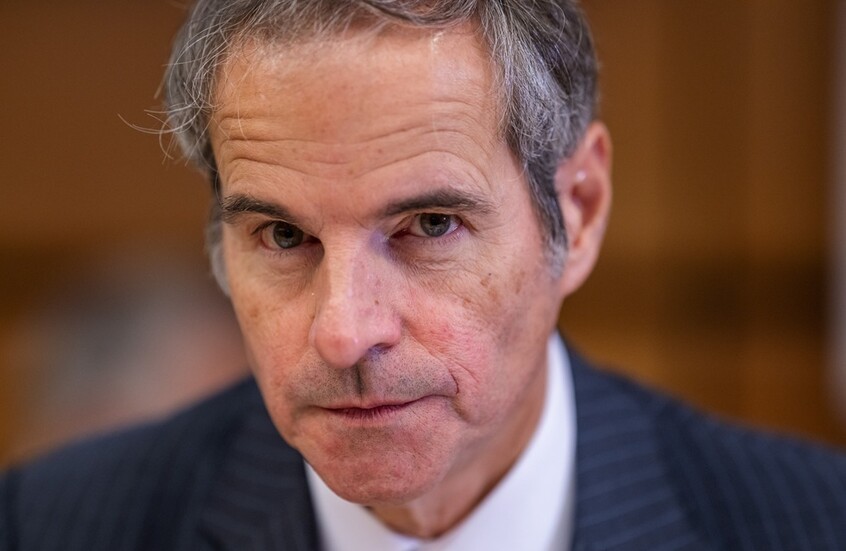Atomic Energy: Iran's Nuclear Program Cannot Be Stopped Militarily

The Director General of the International Atomic Energy Agency, Rafael Grossi, said that Iran's nuclear program cannot be stopped militarily, emphasizing that the solution lies in a comprehensive agreement that includes a monitoring system.
In an interview with the Polish newspaper Rzeczpospolita, Grossi explained that "Iran is a large country with a strong economy and advanced industrial and technological capabilities, and these assets cannot be destroyed by force. Iranians are always capable of hiding part of their activities, so this problem cannot be solved militarily."
He added that only an agreement, if it includes a strict monitoring system, can prevent Tehran from developing nuclear weapons without the knowledge of inspectors.
He pointed out that many officials in Israel and the United States doubt the feasibility of agreements, but he emphasized that "the difficult circumstances make it extremely hard for Iran to develop nuclear weapons secretly."
Grossi confirmed that the agency does not have conclusive evidence that Iran possesses nuclear weapons, despite indications of its technical capabilities in this field. He noted that a report issued before the recent war broke out indicated Iran's lack of transparency about some of its activities, without proving its possession of a nuclear bomb.
In a related context, the Speaker of the Iranian Parliament, Mohammad Baqer Qalibaf, recently announced the suspension of cooperation with the agency, accusing it of "bias towards Israel," and emphasizing that resuming cooperation is conditional on guaranteeing the security of Iranian nuclear facilities.
Israel launched military operations on June 13 targeting Iranian nuclear facilities and prominent figures, accusing Tehran of developing a secret nuclear program.
Iran responded with counterattacks that lasted for 12 days, and the United States joined the conflict by carrying out a limited strike on Iranian nuclear targets. In return, Tehran bombed the American "Al Udeid" base in Qatar, declaring its lack of intention to escalate.
At the end of the clashes, U.S. President Donald Trump expressed hope that the Iranian attacks would serve as a "release of anger," confirming an agreement to cease fire between Israel and Iran.